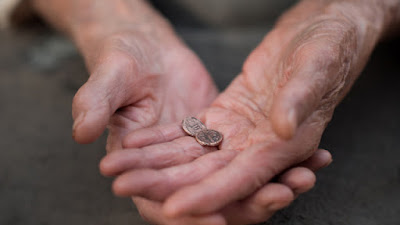“Nobody made a greater mistake than he who did nothing
because he could do only a little.” – Edmund Burke
Do you curse what you have? Do you undermine or downplay your
resources and abilities because they aren’t where you’d like them to be? It’s a
common but dangerous trap to be caught up in, dwelling on what you don’t have
and can’t do rather than on making the most of the abilities and opportunities
you do have.
We all have something to give and good we are capable of
producing. Even if it doesn’t seem to be much, sometimes all you can do is all
you can do. In the Bible, we learn of an impoverished widow who gives away two nearly worthless, tiny coins, which was all the money she had. Financially, the
amount was insignificant at best. Yet, she has been memorialized for two
thousand years – not because of the amount she gave, but because of the
magnitude of her sacrifice. As little as it was, she gave all she had when she
could have easily done nothing.
Rather than following in the footsteps of the servant in
Matthew who buries his money in the ground – justifying his action because it
was a small amount and he didn’t want to lose it – be like the widow and, in
the words of Theodore Roosevelt, “Do what you can, with what you have, where
you are.”

Comments
Post a Comment